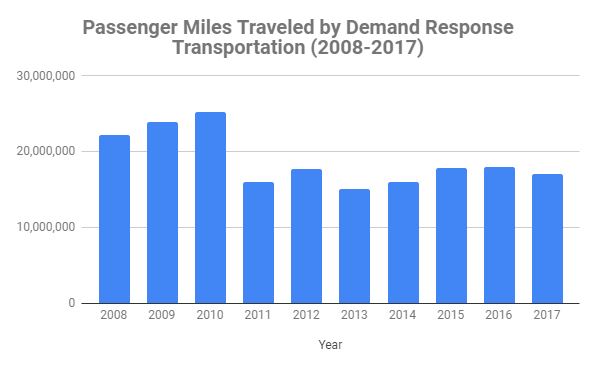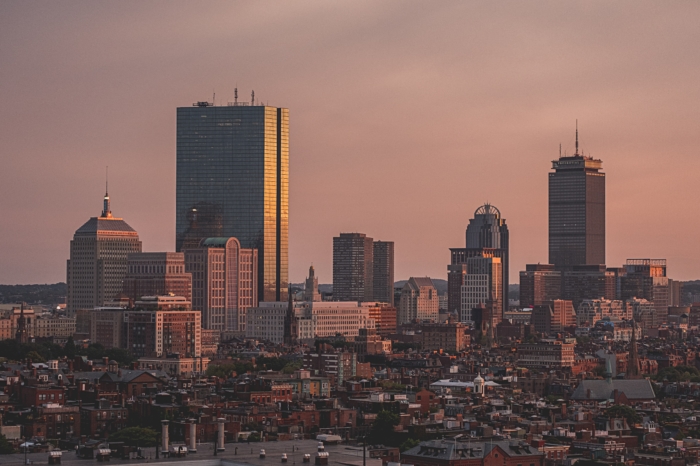Demand Response Transportation on the Decline
Despite a growth in public transportation use in recent years, the MBTA has seen a decline in demand response transportation. Demand response transportation is on-demand service primarily for seniors and people with disabilities, as well as some other services like commuter shuttles. According to Pioneer Institute’s MBTAAnalysis.com, the MBTA’s demand response transportation experienced a 20 percent decrease between 2008-2012 and 2013-2017.

The MBTA’s primary demand response transportation is the RIDE, a paratransit service that serves the elderly and disabled. The decline in RIDE users is likely due to the emergence of ridesharing apps, as usage of the MBTA’s demand response transportation began to decline in 2013, shortly after Uber launched in Massachusetts. This is unsurprising considering the convenience ridesharing apps provide compared to MBTA demand response transportation. Reservations for the RIDE have to be done by phone between 8:30 AM and 5 PM, and a rider has to cancel a trip by 5 PM on the day before the trip or face a penalty. Additionally, a rider will face a premium fee for changes such as requesting a pick-up time more than 30 minutes earlier or later than the original time. While not huge inconveniences, the RIDE does not provide riders with the same flexibility as ridesharing apps.
However, the MBTA has created a pilot program by partnering with Uber, Lyft, and Curb, and subsidizing rates to qualified participants. As opposed to the RIDE, which requires ordering a day ahead, users enrolled in the pilot program can order a car by smartphone without advance notice and have a five-minute pickup window instead of the RIDE’s 30-minute window.
The pilot has produced savings and dramatically improved customer satisfaction. The MBTA’s cost per paratransit trip with Uber and Lyft is $15.27, compared to $40 for the traditional RIDE service. Ridesharing apps are benefiting both riders qualified for paratransit and the T.
Harris Foulkes is a Roger Perry Transparency Intern at Pioneer Institute and a rising sophomore at Amherst College studying Economics.



